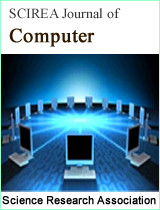A Systematic Mapping Study of Cloud Management: Autonomic, Adaptive, SLAs, and Monitoring
DOI: 1511 Downloads 17483 Views
Author(s)
Abstract
Cloud computing is a service paradigm that provides infrastructure to users from a CSP and allows self-service. There are primarily 3 types of services offered by the cloud namely: Software-as-a-Service (SaaS), Platform-as-a-Service (PaaS) and Infrastructure-as-a-Service (IaaS). In addition, there are four cloud architectural models which are the private, public, community and Hybrid clouds. The cloud has ability to run in autonomic models, it is also very adaptive and has various provisions for monitoring. Self-service and service level agreements (SLA) provide the enabling environment for smooth cloud operations. A systematic mapping study provides a structural survey into a research area or field of interest. It is possible to map frequencies of activities in such an area using a scheme and results are presented pictorially. The objective of this paper is to conduct a systematic mapping study of cloud management, monitoring, autonomic, adaptive, SLA and self-service. Three facets were applied in conducting the categorization. These are the research, contribution and topic facets. The purpose was to determine the level of work so far carried out in the area of cloud computing management. This enabled the creation of a pictorial representation of the research coverage. Papers published in peer-reviewed journals and reputable magazines were utilized for the review. The result of the study showed that there are no opinion research on cloud management. Generally, articles on validation, philosophical and evaluation research are the lowest.
Keywords
Cloud computing, cloud management, autonomic, adaptive, SLA, monitoring, self-services
Cite this paper
ODUN-AYO Isaac, GODDY-WORLU Rowland, SAMUEL Victoria,
A Systematic Mapping Study of Cloud Management: Autonomic, Adaptive, SLAs, and Monitoring
, SCIREA Journal of Computer.
Volume 3, Issue 2, April 2018 | PP. 31-42.
References
| [ 1 ] | Buyya, R., Bromberg J., and Goscinski, A., (2011) ”Cloud computing: principles and paradigms,” John Wiley and Son, New Jersey, 2011, pp. 4-10. |
| [ 2 ] | Clark, K. P., Warnier, M., and Brazie, F. M., (2011) “Self-Adaptive Service level Agreement Monitoring in cloud Environments,” International Conference on intelligence and Adaptive systems. |
| [ 3 ] | Samimi, F. A., Makinley, P. K., Sadjadi, S. M., (2007), “Mobile Service Clouds: A self-managing infrastructure for Autonomic mobile computing services,” Michigan State University, USA, 2007. |
| [ 4 ] | Wu, L., Garg, S. K., and Buyya, R. (2015), “SLA-based admission control for a Software-as-a-Service provider in Cloud computing environments” IEEE 21st International Conference On Parallel And Distributed Systems, 2015. |
| [ 5 ] | Chandana, O.R., Divya, C., Drunda, B.V., and Rajeshwari, B.V. (2017) “A Study on Service Level Agreement Management Technique in the Cloud,” International Journal of Advance Research in Computer Science and Management Studies, Vol 5, No. 5 May, 2017. |
| [ 6 ] | Alhamazami, K., Ranja, R., Mitia, K., Rabhi, E., Khan, S.U., Guabtni, A., and Bhainagar, V. (2014) “An Overview of the Commercial Cloud Monitoring Tools: Research Dimensions, Design Issues, and State-of-the-Art,” University of New South Wales, Australia, 2014. |
| [ 7 ] | Petersen, K., Feldt, R,. Mujtaba S., and Matisson, M. (2008), “Systematic Mapping Studies In Software Engineering”, EASE'08 Proceedings of the 12th international conference on Evaluation and Assessment in Software Engineering, Italy — June 26 - 27, 2008, pp. 68-77 |
| [ 8 ] | Kitchenham, B., and Characters, S. (2007) “Guidelines for performing systematic literature review in software engineering,” Version vol. 2 ed, 2007, pp. 2007-01. |
| [ 9 ] | Muhammed A.B., and Muhammed, A.C. (2014), “A systematic Mapping study of software architectures for cloud based systems,” Software System section, IT University of Copenhagen, 2014. |
| [ 10 ] | Wieringa, R., Maiden, M.A.M., Mead N.R., and Rolland, C., (2006) “Requirement engineering paper classification and evaluation criteria. A proposal and a discussion,” Requirement Engineering, Vol. 11, pp. 102-107, 2006. |

